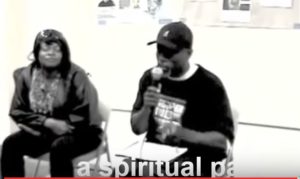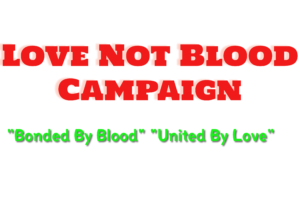Oscar Grant family reaches out to mother of Kenneth Harding
 On a Saturday afternoon in July, 2011, Kenneth Harding Jr., 19, lay stomach down in his own blood, fighting for his life on the corner of 3rd Street and Palou Avenue in the heart of the Bay View Hunters Point neighborhood in San Francisco.
On a Saturday afternoon in July, 2011, Kenneth Harding Jr., 19, lay stomach down in his own blood, fighting for his life on the corner of 3rd Street and Palou Avenue in the heart of the Bay View Hunters Point neighborhood in San Francisco.
Some say San Francisco police officers shot Harding after he allegedly evaded his transit fare on the T-line of San Francisco’s Muni system, and then ran from police. The San Francisco Police Department contends that Harding shot himself while attempting to shoot at SFPD officers, and that the bullet that killed him does not match the kind used by police.
Multiple cell phone videos shot by bystanders show Harding on the pavement, police standing around him with their guns drawn, as the wounded Harding bled out. Last summer, Harding’s mother, Denika Chatman, filed a wrongful death lawsuit against the SFPD alleging the department violated her son’s civil rights and failed to provide medical care to him.
Harding had recently arrived in California at the time of the incident; both Chatman and Harding are originally from Seattle, Washington. When Harding arrived in California, he was on parole after having served prison time for pimping a teenage girl, and was considered a person of interest in an ongoing murder case.
Chatman says that since her arrival in the Bay Area—she now calls Vallejo home—she has received support from the family of another young man who was shot by a police officer and whose death was also recorded on cell phone video—Oscar Grant.
“The family of Oscar Grant has had their arms open to me, openly and willingly, from the time that I touched down in California,” says Chatman.
Grant, a Hayward resident, was shot by BART police officer Johannes Mehserle on Oakland’s Fruitvale BART platform on January 1, 2009, as a number of people videotaped; the footage became evidence in a trial that would lead to Mehserle’s conviction in 2010 for involuntary manslaughter.
Grant’s death, as well as Mehserle’s conviction and sentencing, led to large protests in downtown Oakland.
Grant’s mother also filed a wrongful death lawsuit against BART police—she was awarded $1.3 million in damages in July, 2011. A separate civil suit filed on behalf of Grant’s young daughter also led to a $1.5 million settlement in 2010.
Both the Harding and Grant families were represented by the same attorney in their civil suits, Oakland-based lawyer John Burris. Burris has represented clients in several high profile Bay Area lawsuits against police departments, including representing the plaintiffs in the class action suit against the Oakland Police Department in the 2000 “Riders” police brutality case.
Since the death of his nephew Oscar Grant, Cephus “Uncle Bobby” Johnson has committed himself to supporting the families of victims of police brutality. He started the Oscar Grant Foundation, which he says can be summarized in one word: “support.“ He says the foundation does everything from offer psychological support to legal support to the families of victims of police brutality. “I want to be able to engage families that have suffered this crisis, empower them to a degree that they feel that they can get through the judicial system,” said Johnson, who was the spokesman for the Grant family during the Johannes Mehserle trial.
Johnson said that after watching the footage of Harding’s final moments he asked himself, “What is it that I can do to get justice for my nephew? What is it I can do to get justice for this young man, Kenneth Harding Jr, who was just killed, basically in the same way Oscar was killed?”
Johnson says his overall goal is to draw national attention to the issue of police brutality, and start a discussion about how and why incidents such as these occur. His hope is that President Barack Obama will take on the issue, as he is doing for the broader issue of gun violence. “It’s all the same: the family that loses a loved one to police gun violence suffers the same as a family that loses a loved one to street gun violence,” said Johnson.
The first hearing in Chatman’s suit against the SFPD is scheduled for February 14. In the meantime, she goes to the corner where her son died every third Sunday of the month to feed the needy. While she has no problem visiting the site where her son died, she still asks to be excused from the room when lawyers review the tape of her son bleeding to death.
“No parent should ever see how their child dies,” Chatman says.
More reading on the Kenneth Harding Movement
